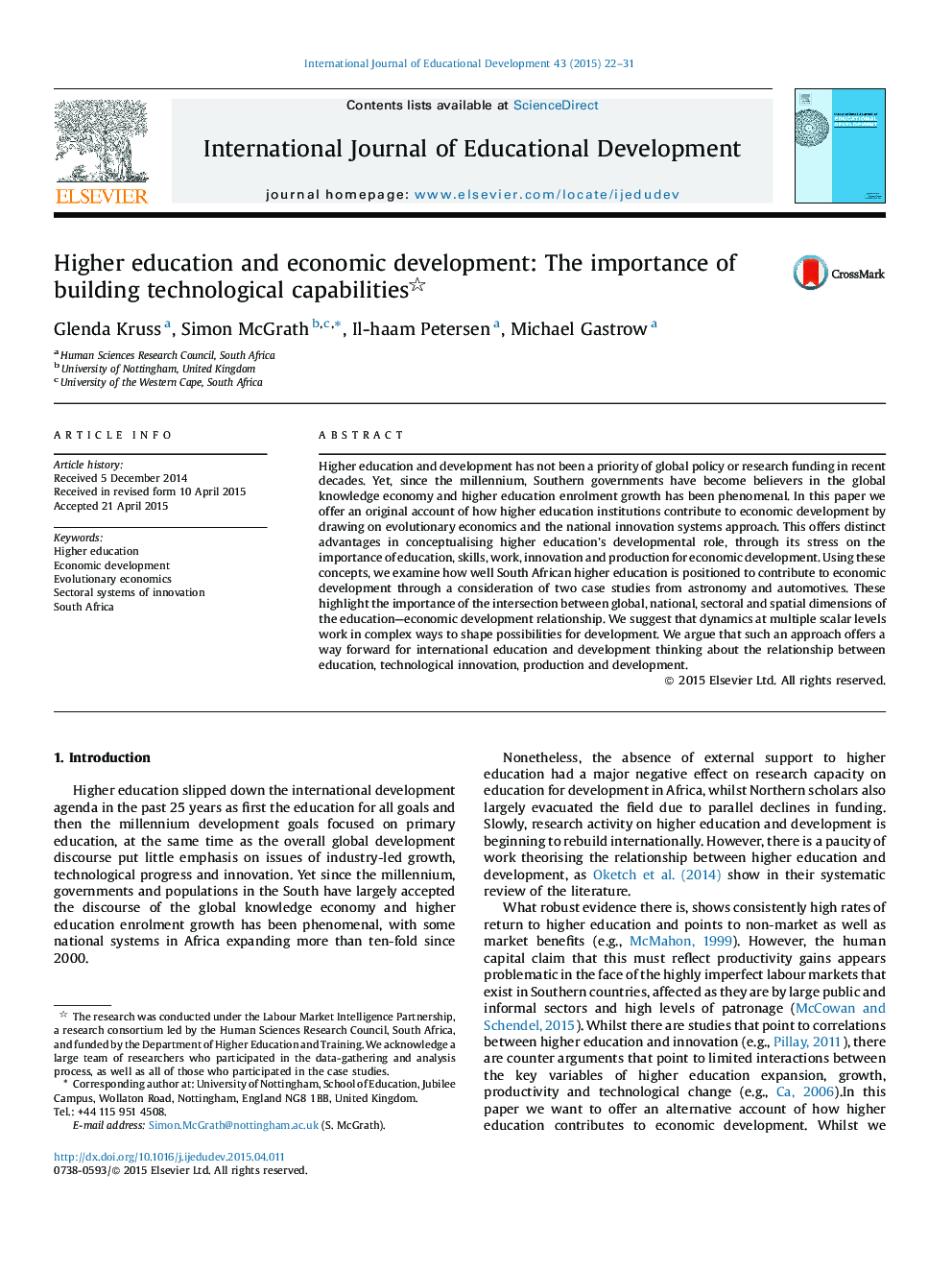| کد مقاله | کد نشریه | سال انتشار | مقاله انگلیسی | نسخه تمام متن |
|---|---|---|---|---|
| 356023 | 1435109 | 2015 | 10 صفحه PDF | دانلود رایگان |
• There is need for new theoretical, empirical and policy work on higher education and economic development in developing countries.
• The evolutionary economics tradition and the sectoral systems of innovation approach offer important new insights into the higher education–economic development relationship.
• The intersection between the global, national, sectoral and spatial dimensions is crucial when thinking about the connection between education and economic development.
• The approach puts learning – in firms, education and training or intermediary organisations – at the heart of analysis.
• In highlighting the role of actors and their interaction in networks, the approach also allows us to move away from accounts that focus simply on the responsibility of higher education to become more responsive to firms.
• The approach balances the focus on actors with a stress both on policies and sectoral, and wider, institutional dynamics.
Higher education and development has not been a priority of global policy or research funding in recent decades. Yet, since the millennium, Southern governments have become believers in the global knowledge economy and higher education enrolment growth has been phenomenal. In this paper we offer an original account of how higher education institutions contribute to economic development by drawing on evolutionary economics and the national innovation systems approach. This offers distinct advantages in conceptualising higher education’s developmental role, through its stress on the importance of education, skills, work, innovation and production for economic development. Using these concepts, we examine how well South African higher education is positioned to contribute to economic development through a consideration of two case studies from astronomy and automotives. These highlight the importance of the intersection between global, national, sectoral and spatial dimensions of the education—economic development relationship. We suggest that dynamics at multiple scalar levels work in complex ways to shape possibilities for development. We argue that such an approach offers a way forward for international education and development thinking about the relationship between education, technological innovation, production and development.
Journal: International Journal of Educational Development - Volume 43, July 2015, Pages 22–31
